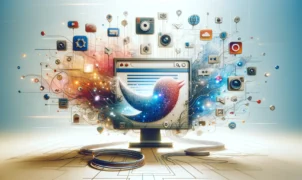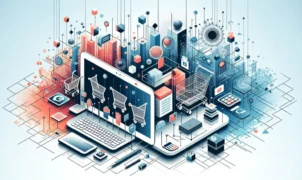Complete Guide to Sustainable Development: Positive and Negative Aspects
Introduction to Sustainable Development
Sustainable development is a comprehensive approach to economic growth that ensures the well-being of current generations without compromising the ability of future generations to meet their own needs. It revolves around three interconnected pillars: economic growth, social inclusion, and environmental protection. The concept was formalized in the 1987 Brundtland Report and has since been enshrined in policies worldwide, notably through the United Nations Sustainable Development Goals (SDGs), which set targets to achieve global sustainability by 2030.
- Economic Sustainability
The goal is to promote inclusive and sustained economic growth while ensuring that resources are utilized responsibly. It includes practices like efficient energy use, green technology adoption, and sustainable infrastructure development. - Social Sustainability
Sustainable development Focuses on promoting well-being, reducing inequalities, improving access to education, healthcare, and gender equality, and ensuring fair labor practices. - Environmental Sustainability
Involves conserving natural resources, reducing pollution and waste, protecting biodiversity, and mitigating climate change through clean energy and sustainable agriculture.
- Environmental Protection
- Reduction of Environmental Degradation:Sustainable development By embracing sustainable practices, we can significantly reduce deforestation, water scarcity, air pollution, and greenhouse gas emissions.
- Renewable Energy Transition: The shift towards renewable energy sources like solar, wind, and hydroelectric power reduces dependency on fossil fuels, decreasing carbon footprints and lowering long-term environmental impacts.
- Biodiversity Conservation: Protecting ecosystems and biodiversity ensures the longevity of natural resources, which benefits both local communities and global environmental health.
- Economic Growth
- Green Jobs Creation: Sustainable industries, such as renewable energy and eco-tourism, have the potential to generate millions of green jobs, contributing to economic stability and innovation.
- Cost Savings: Sustainable development often involves energy efficiency, waste reduction, and resource optimization, leading to long-term cost savings for businesses and governments.
- Sustainable Innovation: A focus on sustainability drives technological advancements, leading to new markets and opportunities in sectors like clean energy, agriculture, and sustainable construction.
- Social Inclusion and Equality
- Poverty Reduction:Sustainable development By promoting inclusive economic growth, sustainable development helps lift communities out of poverty through the creation of jobs, better access to essential services, and improved living conditions.
- Improved Health and Well-being: Access to clean water, food security, and clean energy improves public health, reducing the incidence of diseases related to pollution and malnutrition.
- Education and Empowerment: Sustainable development promotes access to education, especially for marginalized communities, and emphasizes gender equality, leading to a more inclusive society.
- High Initial Costs
- Cost of Transition: Implementing sustainable practices requires significant upfront investment in green technologies, infrastructure, and research. For developing countries or businesses with limited capital, these costs can be prohibitive.
- Energy Transition Challenges:Sustainable development While renewable energy is becoming more affordable, the infrastructure needed to transition from fossil fuels remains expensive and often requires long-term subsidies or government intervention.
- Technological and Knowledge Gaps
- Unequal Access to Technology: The development and deployment of sustainable technologies are not uniformly distributed, leaving poorer nations with fewer resources to adapt to sustainable practices. This creates a risk of widening the gap between developed and developing countries.
- Lack of Expertise: Sustainable development There is often a shortage of skilled labor and knowledge in implementing sustainable solutions, which can delay progress in certain regions or sectors.
- Social and Cultural Resistance
- Displacement of Traditional Practices: In some communities, sustainable development initiatives can displace traditional ways of life, particularly in areas related to agriculture and energy, leading to cultural and social disruption.
- Job Loss in Non-Green Industries: The shift toward sustainability can negatively affect industries that rely on non-renewable resources, such as coal mining, oil extraction, and traditional manufacturing, leading to job losses in these sectors.
- Policy and Governance Challenges
- Political Resistance: Achieving sustainable development goals often requires comprehensive policy reforms, which can face opposition from powerful interest groups tied to traditional industries. Corruption, poor governance, and lack of political will can also hinder progress.
- Regulatory Complexity: Developing regulations that balance economic growth, social equity, and environmental protection is a complex process. Policies can be difficult to implement, especially when they affect existing industries and livelihoods.
- Risk of Greenwashing
- Superficial Sustainability: Sustainable development Some companies or governments may adopt the language of sustainability without implementing meaningful changes, misleading consumers and investors. This practice, known as greenwashing, can slow progress and reduce trust in sustainability initiatives.
Conclusion
Sustainable development is essential for securing the future of our planet and ensuring a high quality of life for future generations. While the positive aspects of economic growth, social equality, and environmental protection offer a hopeful vision, the negative aspects like high costs, technological gaps, and political resistance cannot be ignored. By carefully addressing these challenges and ensuring a balanced, inclusive approach, societies can work towards a more sustainable future that benefits all.


























